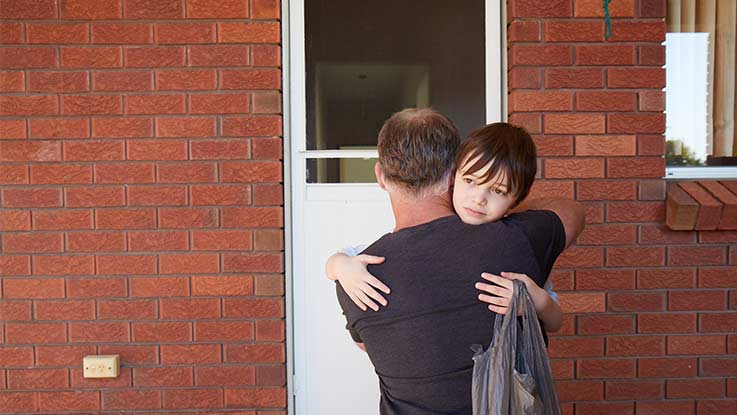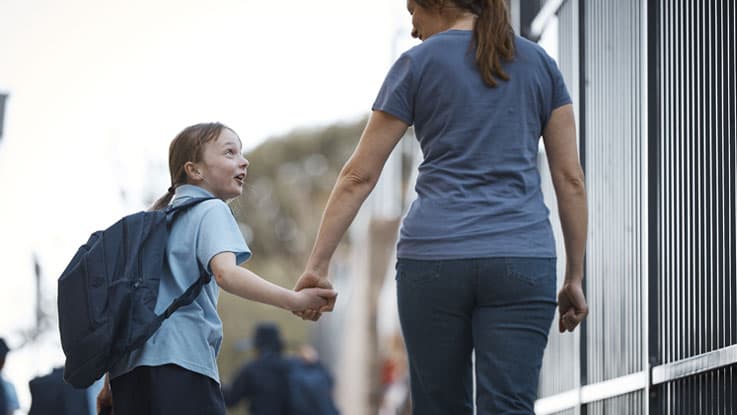
The Smith Family Pulse Survey
Rising living costs adding to educational challenges for children, according to latest survey.
Cost-of-living pressures are putting children’s education at risk, with many families finding it harder to afford school essentials and rising costs adding to the significant educational challenges already faced by children experiencing disadvantage.
This is the third Pulse survey to be carried out by The Smith Family. The first survey presented the perspective of The Smith Family’s frontline team members; for the second survey and this one, we spoke to the families we support. The survey will be repeated annually to provide a snapshot of families’ changing circumstances and hear directly from parents and carers about issues affecting their children’s education.
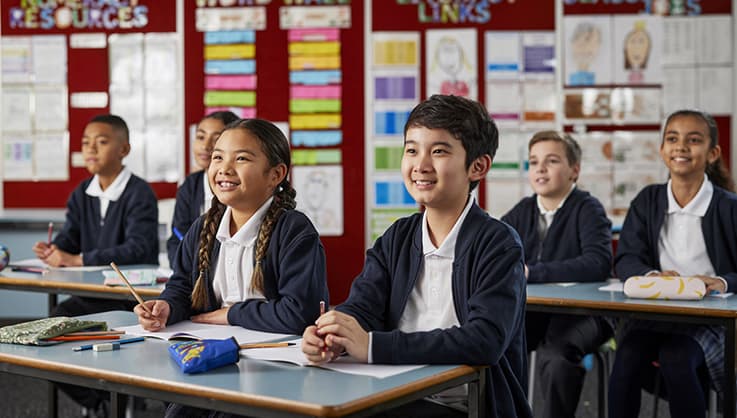
KEY FINDINGS:
- 87% of parents and carers were worried about being able to afford all the things their children will need for the 2023 school year.
- Over 51% think their children are likely to miss out on the digital devices needed for schoolwork because they won’t be able to afford them in 2023.
- 62% of parents and carers found it harder to afford all the things their children needed for school in 2022 compared to 2021.
- 52% of parents and carers said everyday expenses such as groceries, rent and petrol were the main reason for the decreased affordability.
- 38% of parents and carers said school had been hard or very hard for their children in 2022. The main reasons cited for this were struggling academically, motivation for school and other social issues. Disruptions caused by COVID, disability and medical issues, and financial pressures also had an impact.
Families worried about being able to afford back to school costs in 2023
Thousands of Australian children could miss out on essential items for learning as they head into the new school year, including digital devices, internet access, school supplies, uniforms and shoes, as families grow increasingly worried about the effect of cost-of-living increases on their household budgets.
Nearly nine out of ten parents and carers (87.1%) are worried to some degree about being able to afford all the things their children will need for school this year. Of these, three in ten (29.8%) are very worried, a similar proportion (29.6%) are somewhat worried and 27.7% were a little worried.
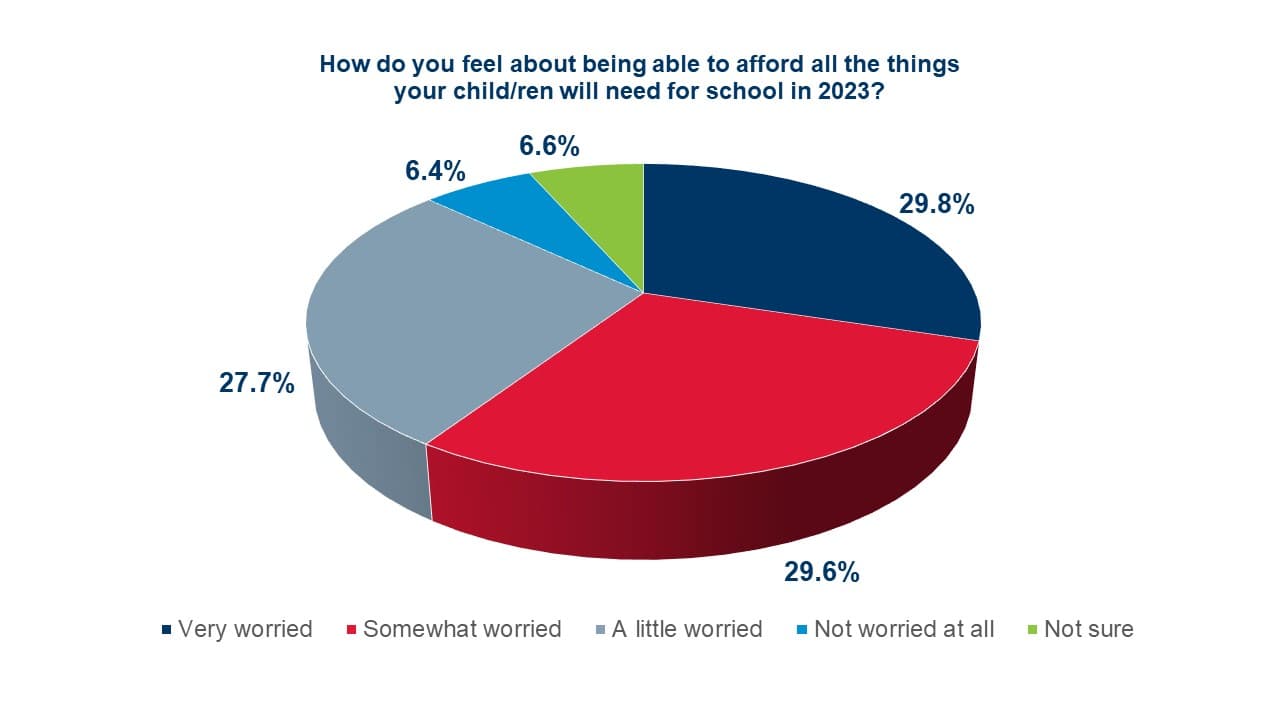
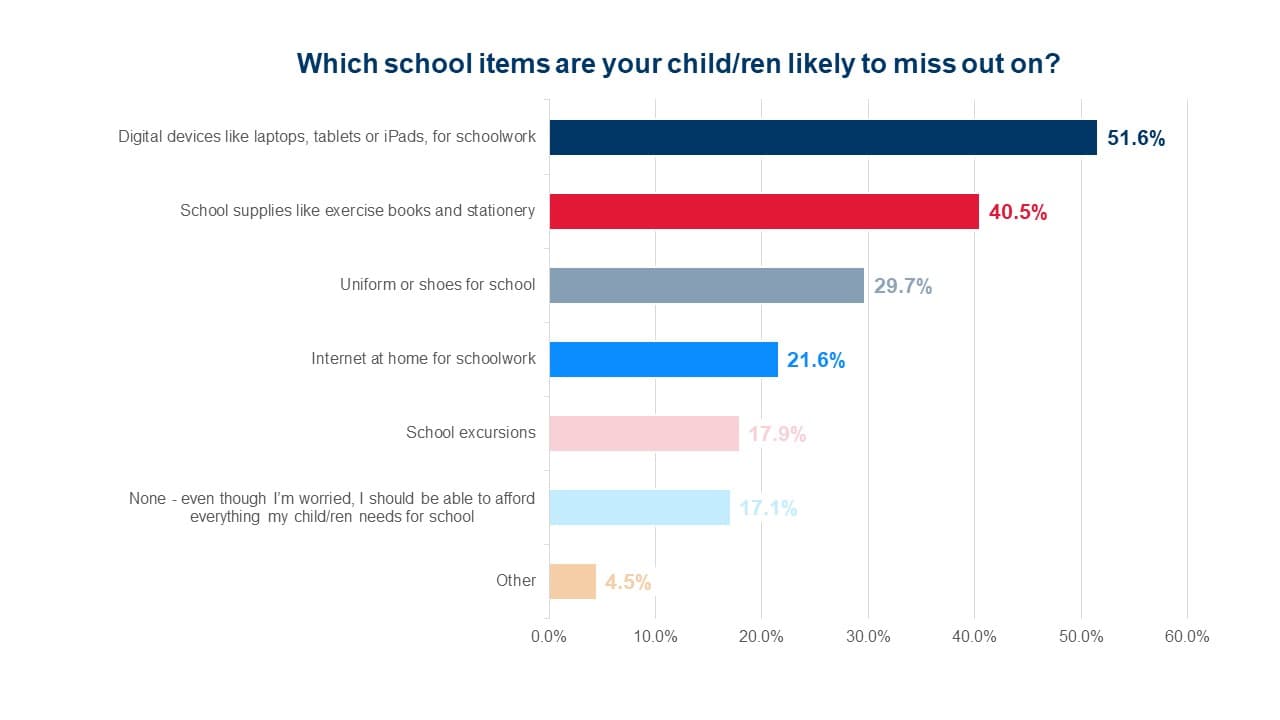
Cost-of-living increase made school less affordable in 2022
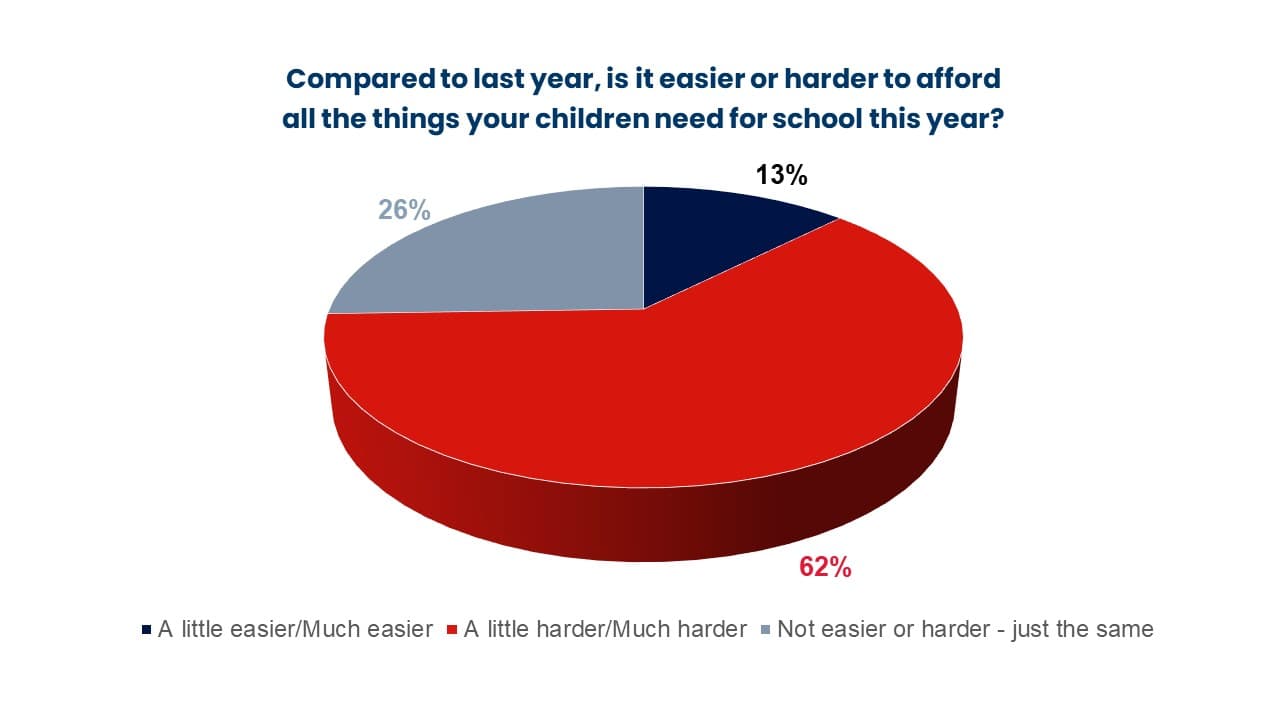
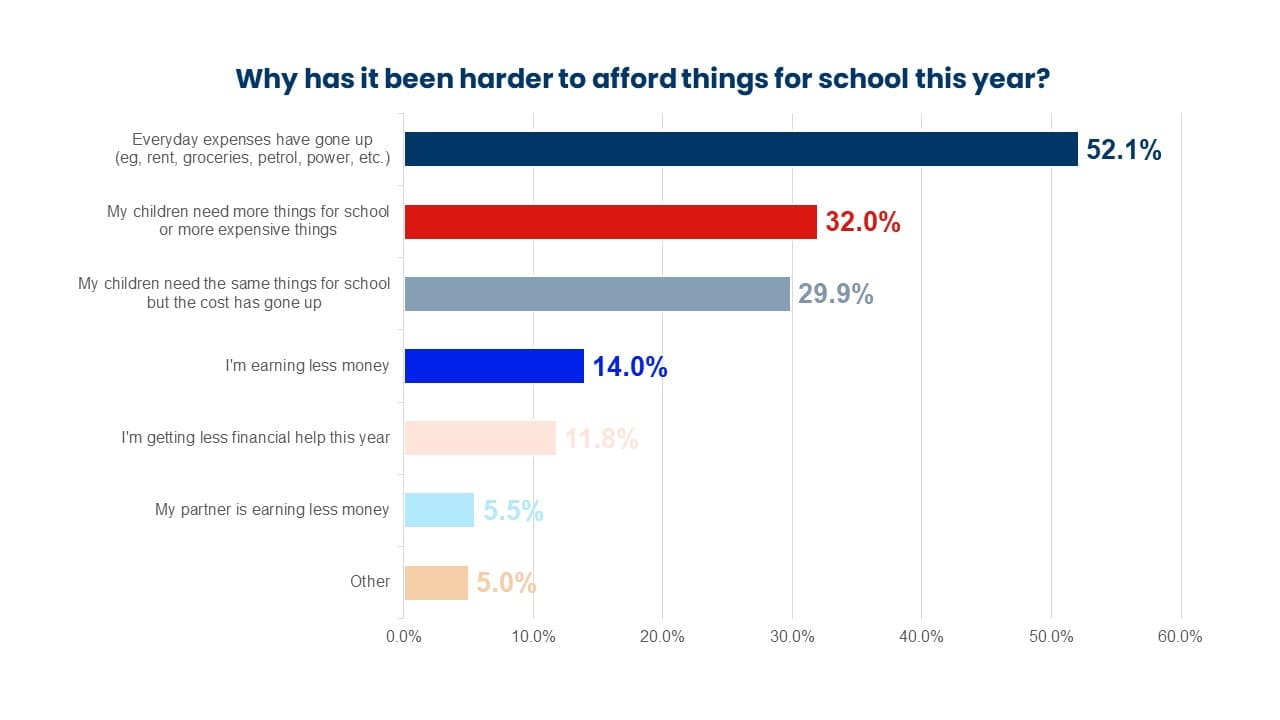
Almost a third (32%) said that their children now needed more things for school, or more expensive things. Three in ten respondents (29.9%) said that their children still needed the same things for school, but those items were now more expensive.
Rising living costs made it difficult to provide for basic needs such as food, petrol to do pick-ups, school excursions.
Starting high school is hard anyway. But to get our girl to her additional needs school we drive 45 mins each way. Petrol prices are taking most of our cash, after rent. Food has to be cut back. Cheap meals like hot chips, frozen pizzas, noodles, etc., don't make the greatest healthy meals but they do fill hungry tummies.
School didn't get easier in 2022
Almost four in ten respondents said that school had been hard or very hard for their children in 2022. The reasons for this varied but generally related to issues at school such as motivation, struggling academically and social issues.
The disruption caused by COVID-19 also was a factor, with parents reporting that their children were still making up for time off school or dealing with a lack of online support during COVID restrictions. Other causes cited were disability and medical issues (for both children and parents) and financial pressures.
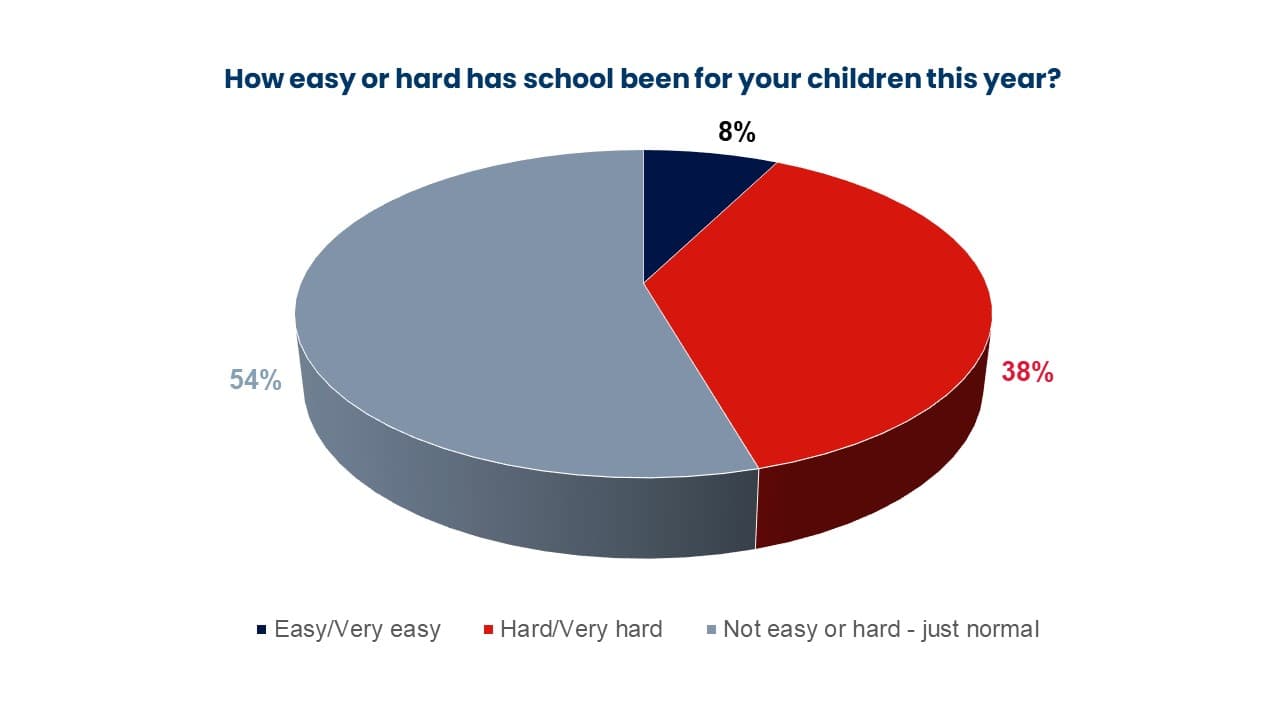
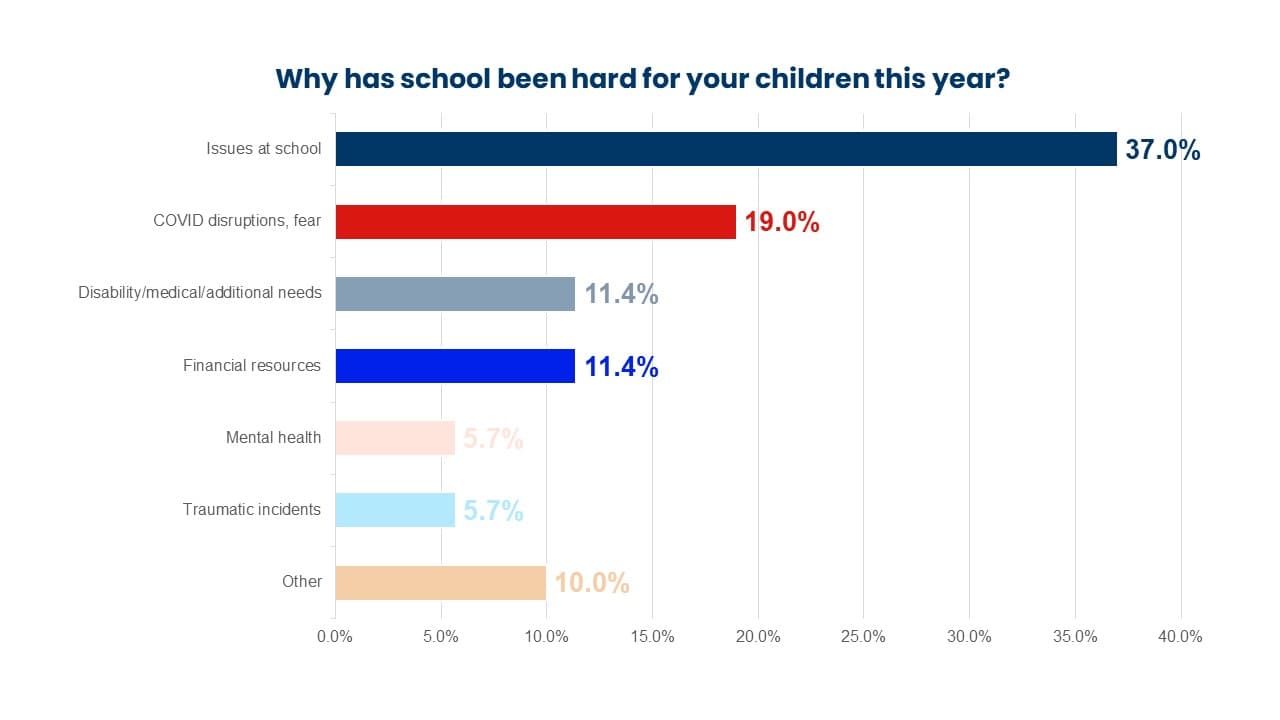
Covid has played another significant part this year. The first term my kids spent more time at home than at school. I know schools are only doing as they are instructed, but the lack of support for online learning has made life more difficult.
Having internet that is unreliable and a lack of devices doesn't help either. There is so much assumption about what access students have, including streaming services, that it places more burdens on families.
But there's plenty to be proud of
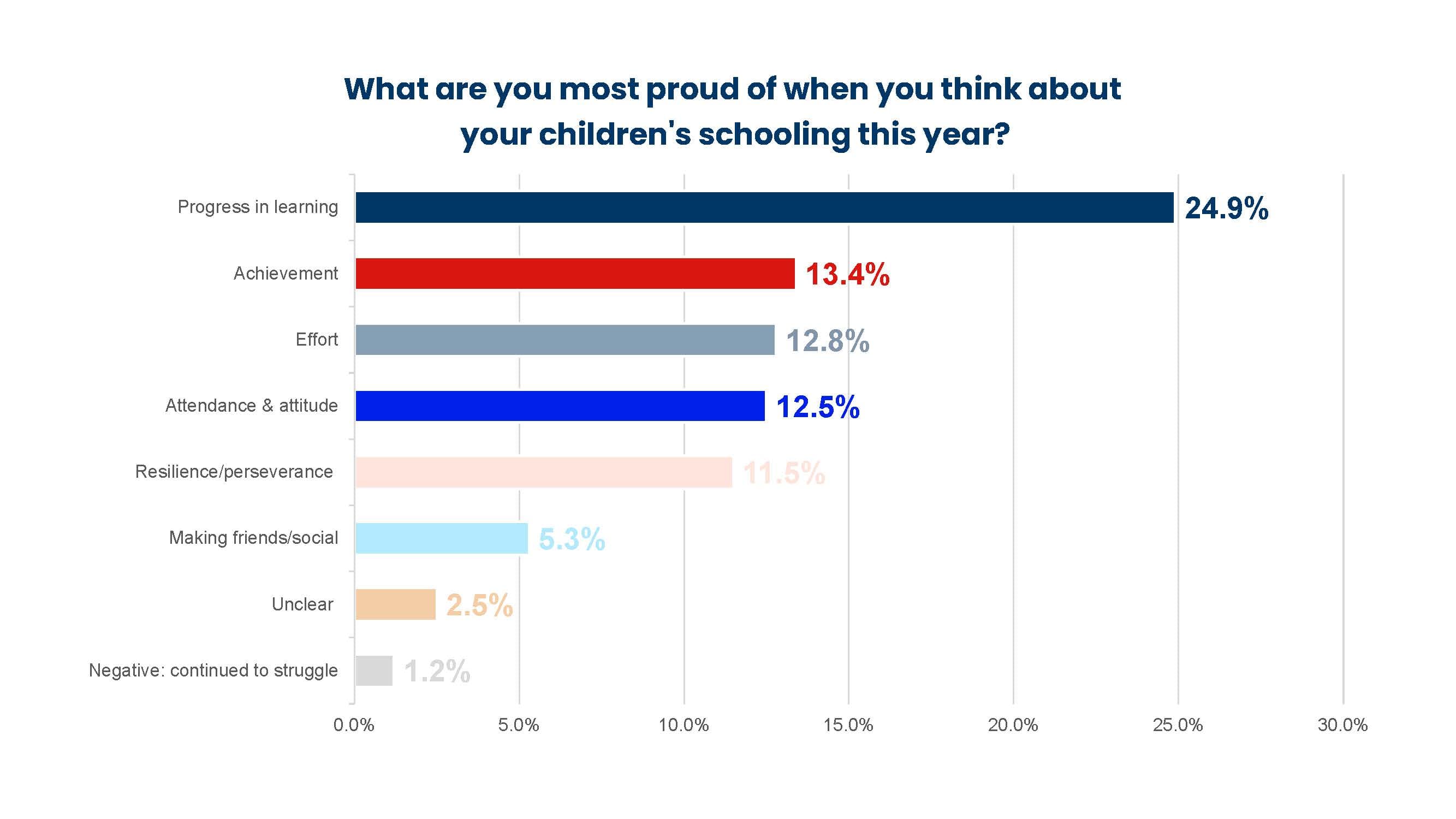
“[I am proud] that they both keep trying their best, despite having been sick a lot. It would be easy to become discouraged and stop trying but they have been real troupers.” Parent
A quarter of all families who responded (24.9%) said they were proud of the progress their children had made in their learning.
“She has been struggling in maths and I tell her to do the best she can. And then comes home and says she passed a maths test. So, I told her, great work.” Parent
I feel my child fell behind during lockdowns as online learning didn’t give the opportunity to ask questions as much as it did face to face.
How my child is approving in all areas, maths, reading and writing. How my child enjoys singing, dancing and athletics. How she has compassion and cares for others.
HOPEs FOR 2023
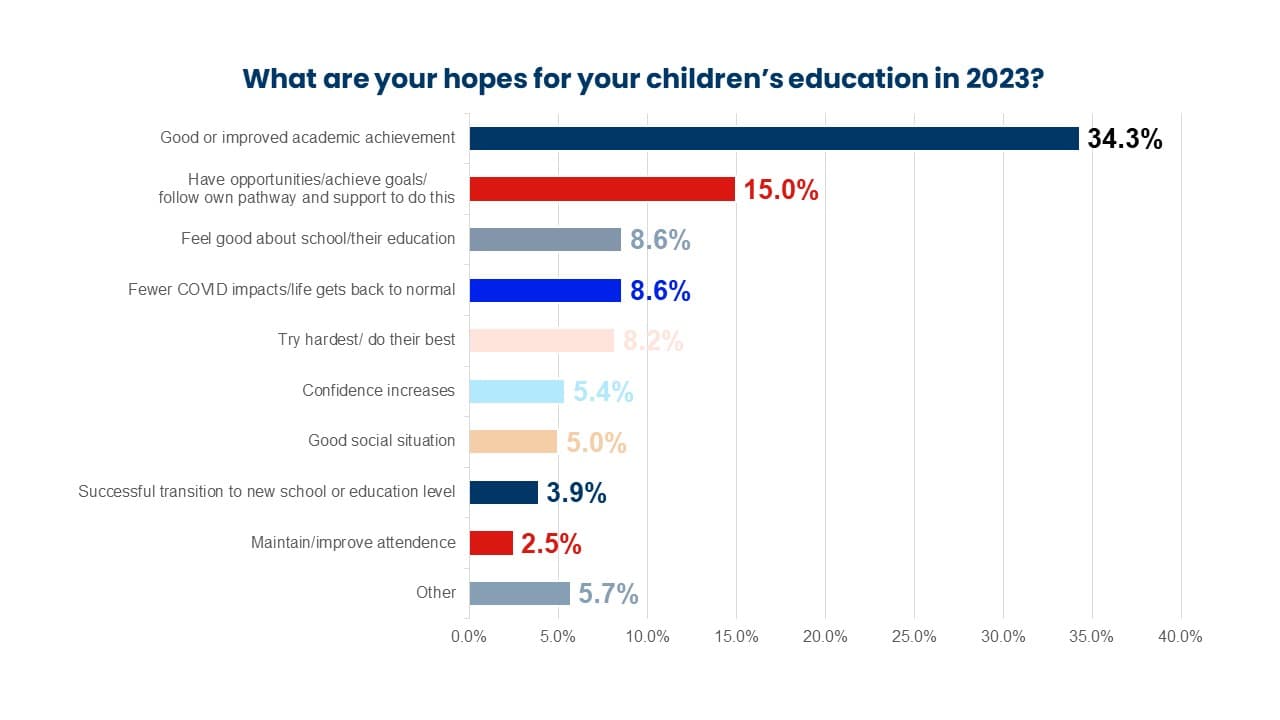
More than a third (34.3%) of respondents hoped for good or improved academic achievement for their children in 2023.
“That they excel in school and just be the best they can be at school and out of school.” Parent
Nearly one in six (15%) said they wanted their children to have opportunities to achieve their goals and be supported to do that. Almost 9% hoped that life would return to normal after COVID.
“I just hope our children can continue to attend school. That COVID will be manageable. That there will be no more lockdowns so our kids can have a normal school year.” Parent
And a significant number of respondents wanted their children to feel good about their education (8.6%) and try their best (8.2%).
That they have more opportunities and do their very best in all subjects and most of all believe in themselves.
I hope that they can look back on 2022 and see how far they have come in a year.


